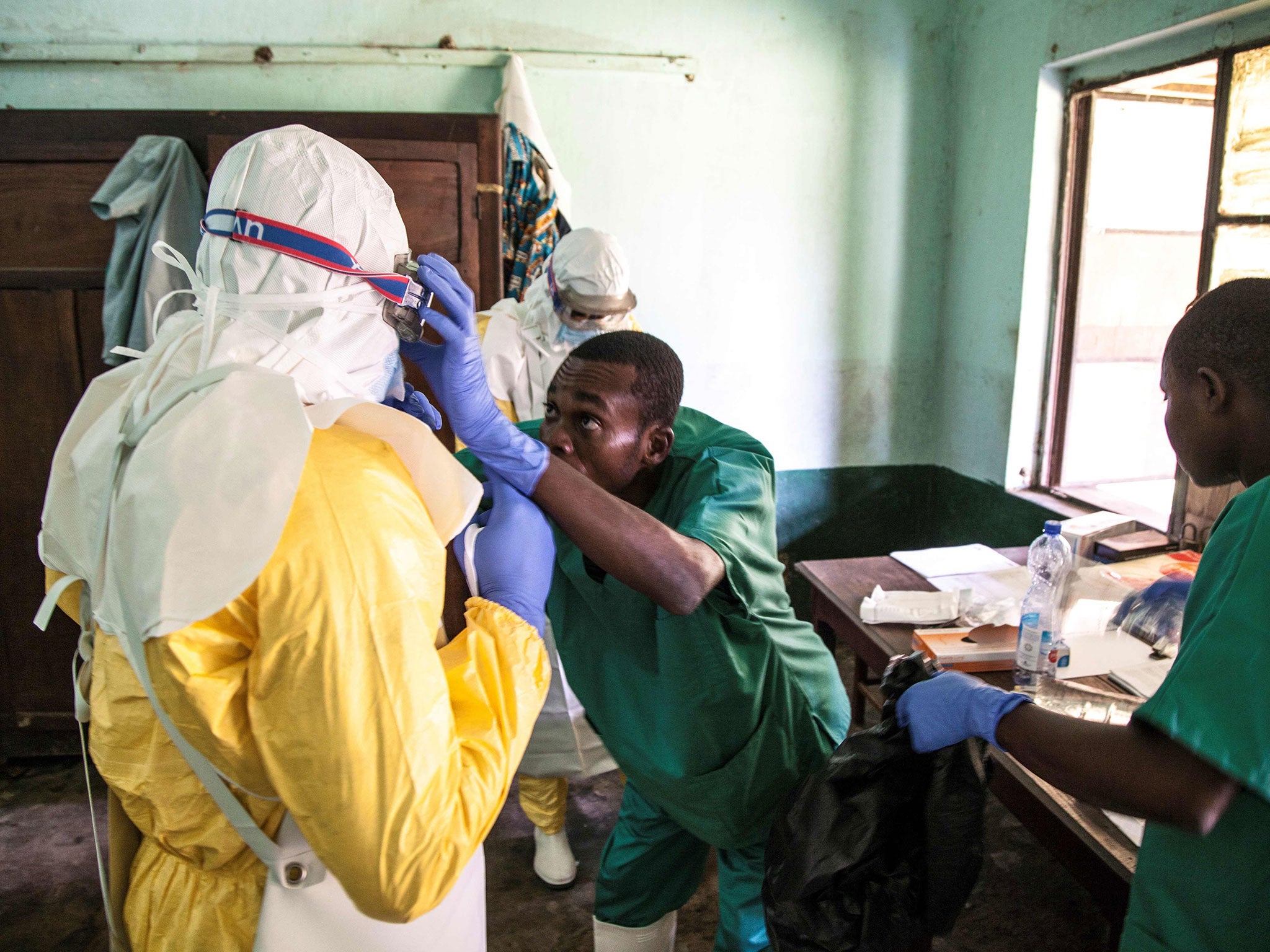Ebola patients escape quarantine unit on motorbikes to attend busy prayer meeting
'The patients were in the active phase of the disease, vomiting'

Two dying Ebola patients were taken out of a hospital by their relatives on motorbikes and brought to a prayer meeting with 50 other people, potentially exposing them all to the deadly virus.
The Democratic Republic of the Congo is scrambling to contain an outbreak of the disease, which has infected 31 people and killed 22, according to government figures.
Both patients were vomiting and infectious and died hours after the prayer session in the river port city of Mbandaka, Dr Jean-Clement Cabrol, emergency medical coordinator for Medecins Sans Frontiers (Doctors Without Borders) said.
“The escape was organised by the families, with six motorcycles as the patients were very ill and couldn’t walk,” Dr Cabrol told a news briefing in Geneva after returning from the affected region.
“They were taken to a prayer room with 50 people to pray. They were found at two in the morning, one of them dead and one was dying. So that’s 50-60 contacts right there. The patients were in the active phase of the disease, vomiting.”

The patients got out of the isolation ward on Monday. One of the patients died at home, CNN reported, while the other returned to the health facility but died. A third patient who left the ward survived.
The World Health Organisation (WHO) said the risk to public health had been raised to “very high” after Ebola was confirmed to have spread to the major city.
It led health officials to monitor for Ebola at busy ports in the capital, Kinshasa, which is downstream on the Congo River.
Health officials started trying to trace the motorcycle drivers and other people who came into contact with the patients as soon as the escape was reported, Dr Peter Salama, head of emergency response at the WHO, told Reuters.

“From the moment that they escaped, the health ministry, WHO and partners have been following very closely every contact,” he said.
“All it takes is one sick person to travel down the Congo River and we can have outbreaks seeded in many different locations ... that can happen at any moment. It’s very hard to predict,” he said, referring to the river linking the trading hub of Mbandaka to the capital Kinshasa, whose population is 10 million.
“It is going to be at least weeks and more likely months before we get this outbreak fully under control,” Mr Salama said

It is the DRC’s ninth Ebola outbreak since 1976, when the disease was first identified.
Symptoms of the often fatal haemorrhagic fever include vomiting, diarrhoea, muscle pain and sometimes internal and external bleeding.
It can be fatal in up to 90 per cent of cases, depending upon the strain.
This week, the WHO began vaccinations using a “ring vaccination” approach, targeting the contacts of people infected of suspected of infection, and then the contacts of those people.
More than 600 contacts have been identified so far.
The WHO is also accelerating efforts in nine countries neighbouring the DRC to try to prevent the Ebola outbreak from spreading, saying the regional risk is high.
The UK Foreign Office has advised “against all but essential travel to the Equateur” province where the outbreak was announced.
Additional reporting by agencies
Join our commenting forum
Join thought-provoking conversations, follow other Independent readers and see their replies
Comments
Bookmark popover
Removed from bookmarks